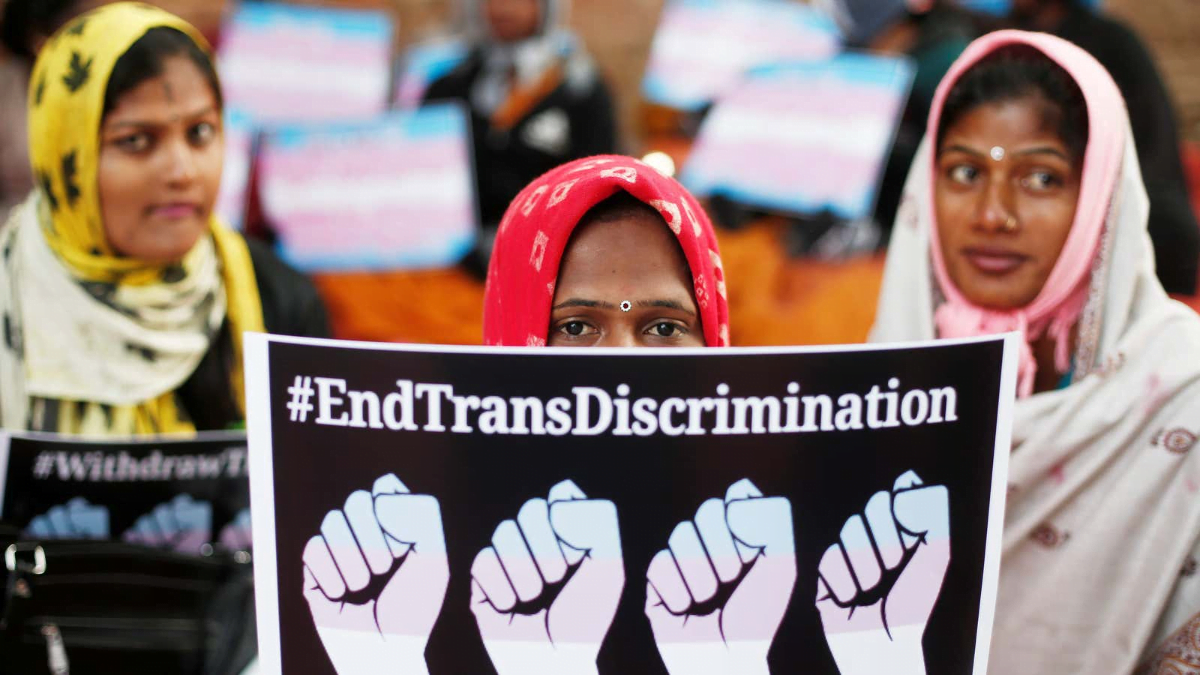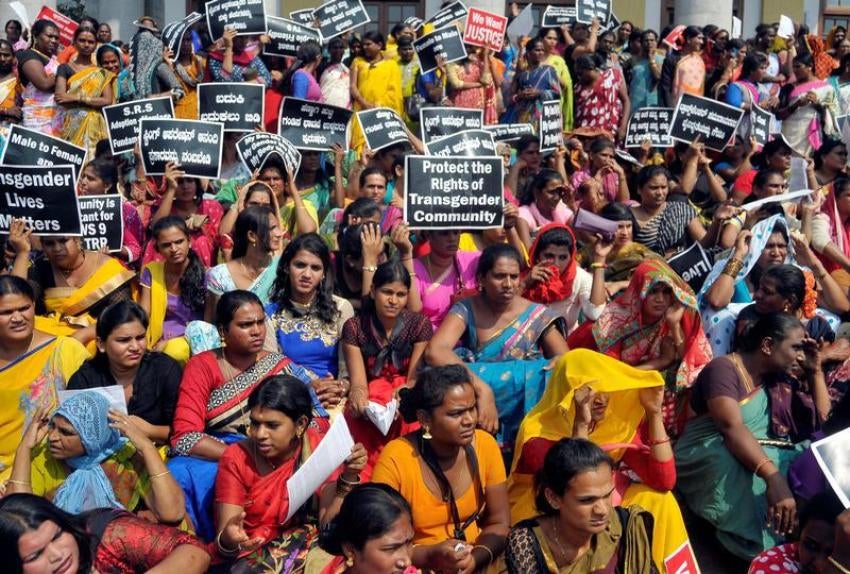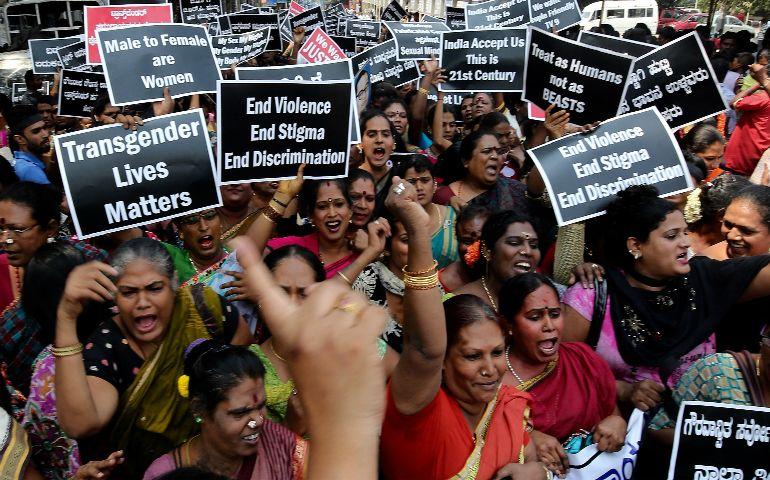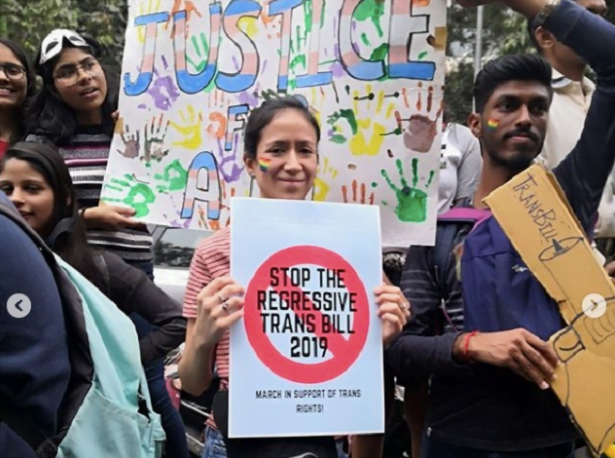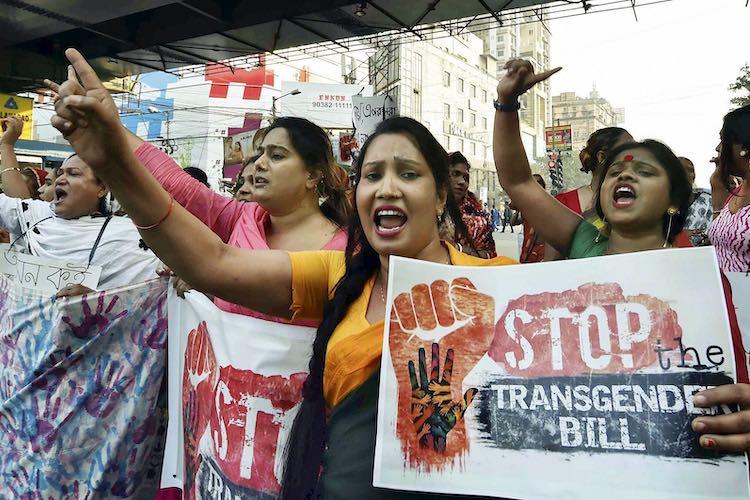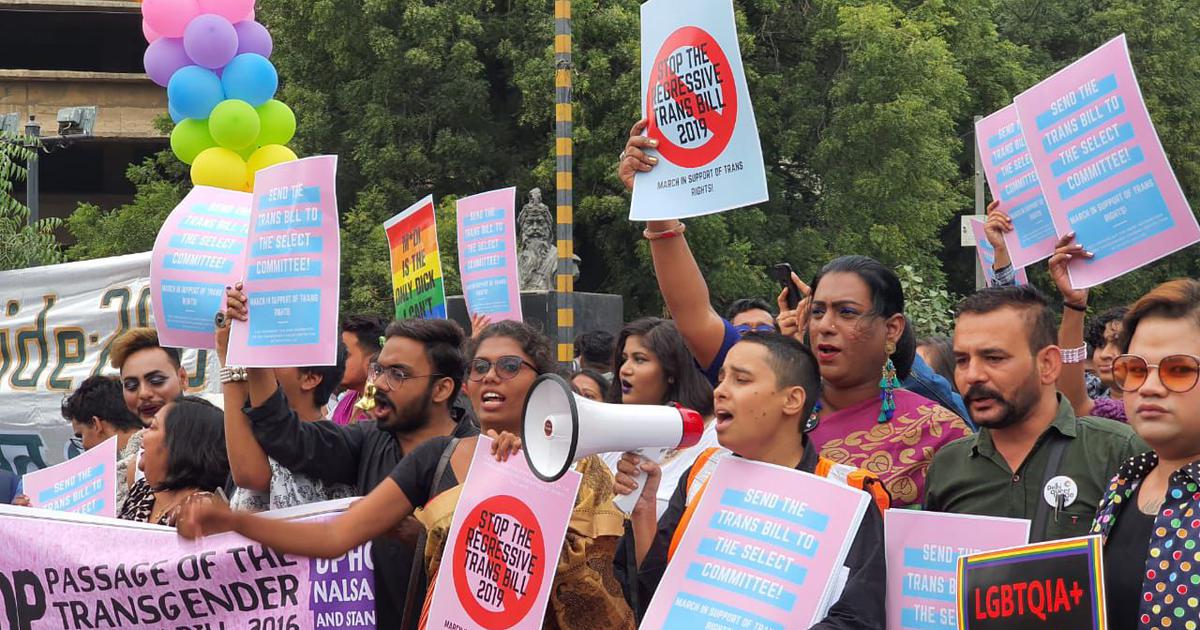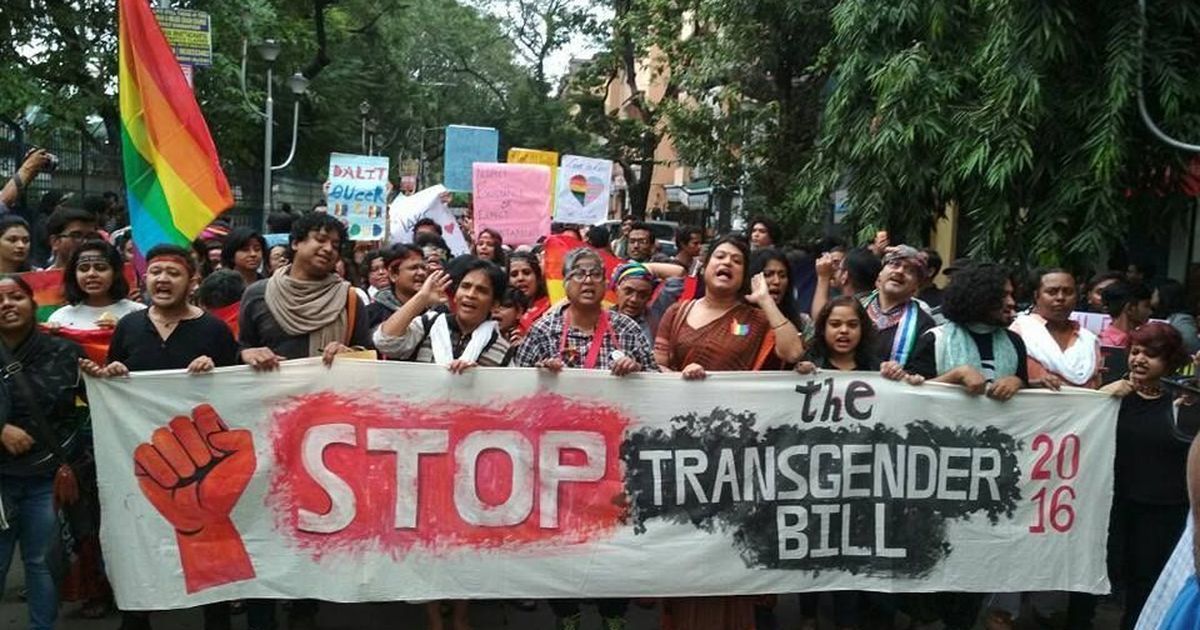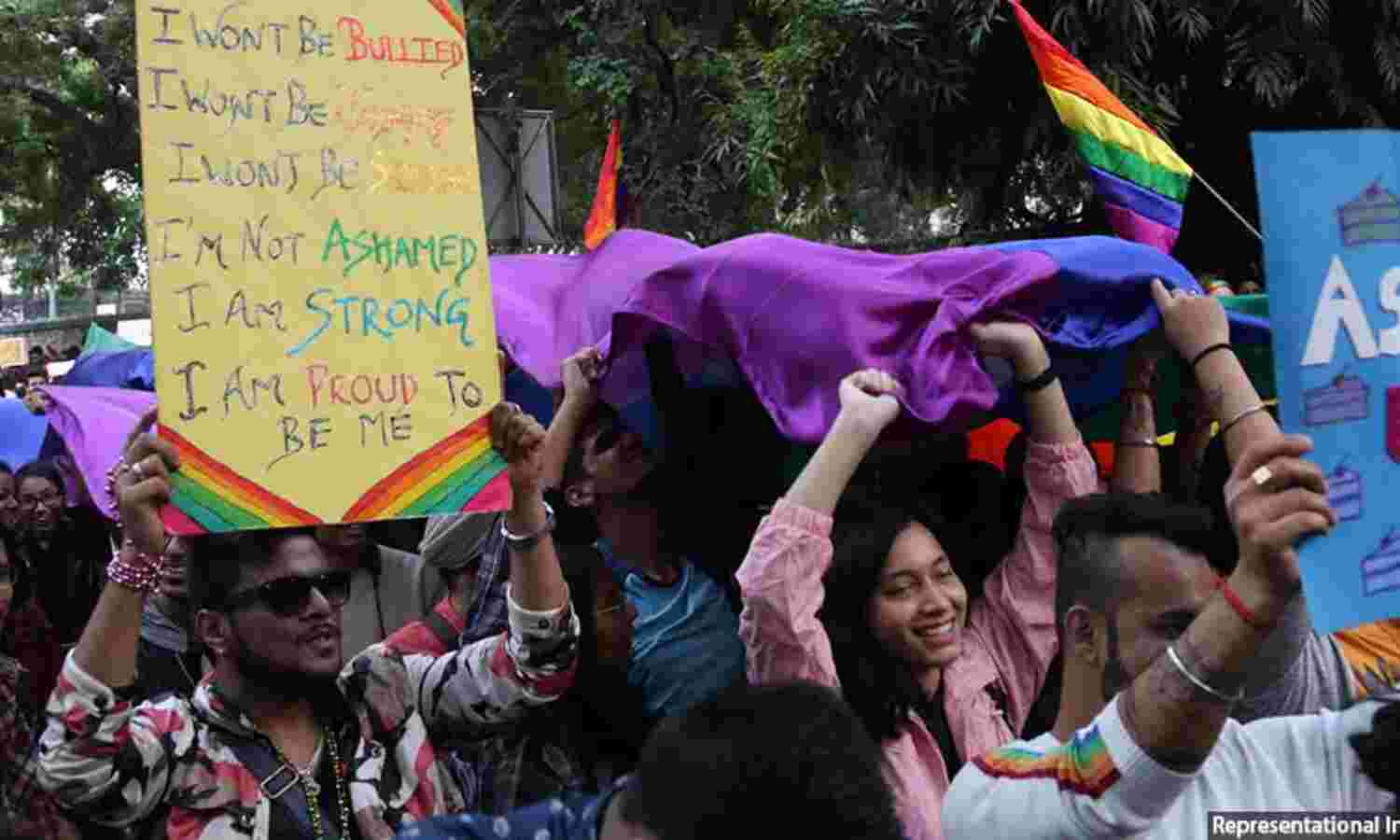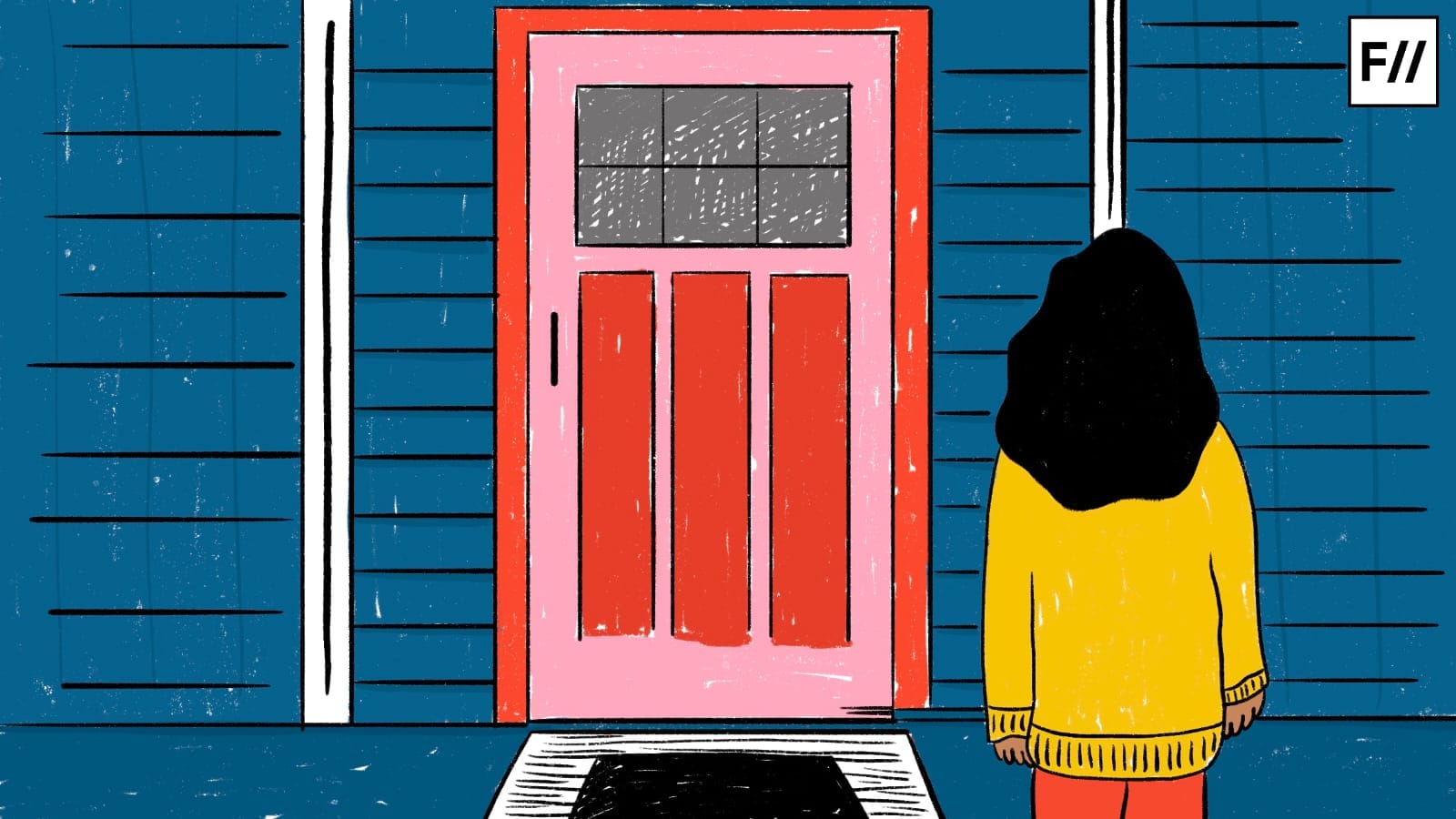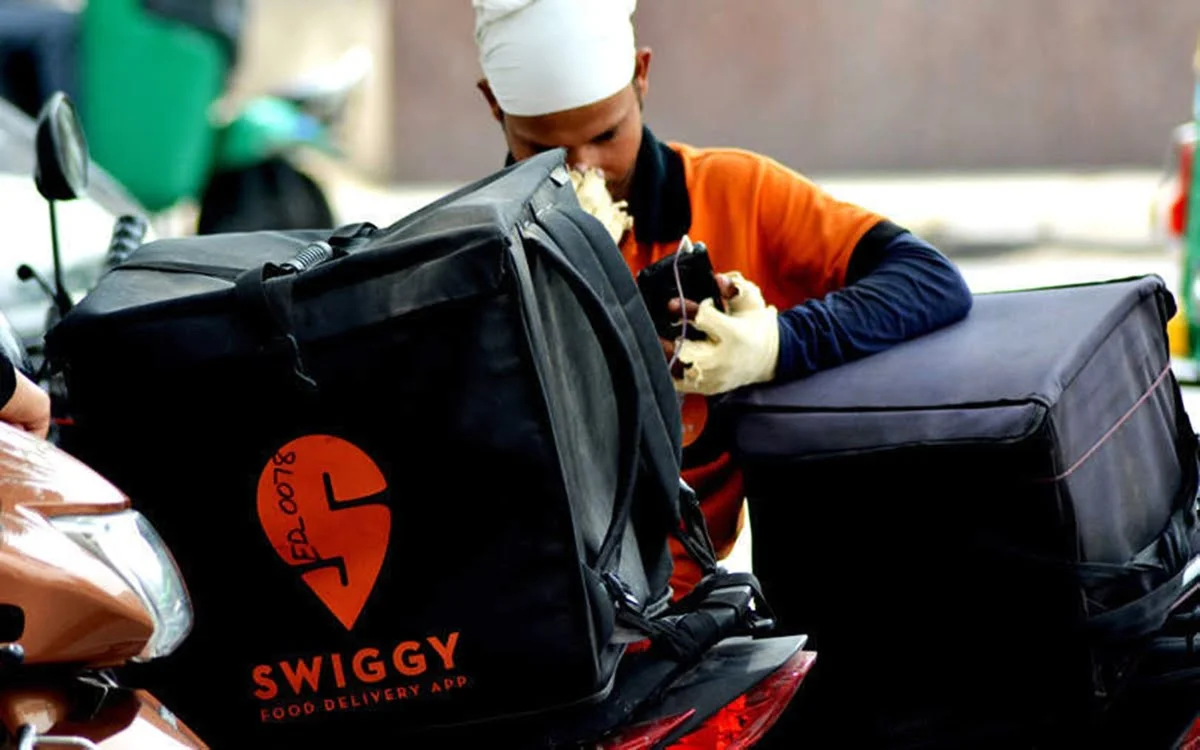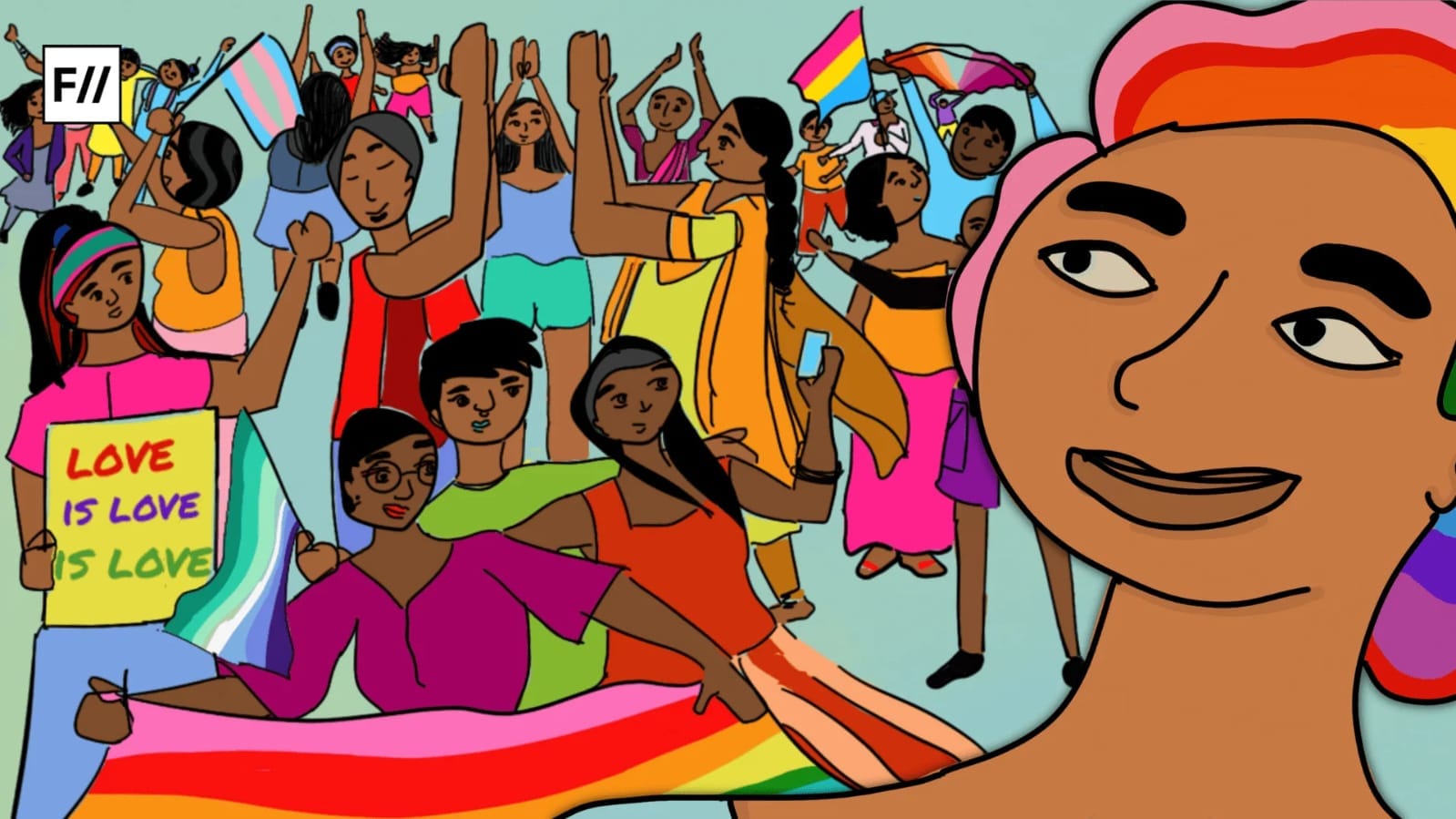‘Identity, roti, kapda, makaan – humein in chaaro cheezo ke liye suffer aur struggle karna padta hai,’ (Identity, food, clothing, and shelter – we have to endure hardships and struggles for these four basic necessities) says Bela, wearing an all-black outfit with a vibrant red chunni. She passionately leads an informative performance with her group, aiming to raise awareness on trans health on World AIDS Day.
As a trans woman activist from Delhi, she adds, ‘No cis-heterosexual person has to endure this much just to gain their identity, but we always have to suffer in every aspect.’
As a trans woman activist from Delhi, she adds, ‘No cis-heterosexual person has to endure this much just to gain their identity, but we always have to suffer in every aspect.’
In a disheartening reality, sadistic practices like ‘conversion therapy’ (Conversion therapy is a type of therapy aimed at changing a person’s same-sex attraction or gender identity and expression) still prevail, while right-wing authoritarianism fuels blatant trans and homophobia supported by the state. A study by the National Institute of Epidemiology reveals alarming statistics – police and law-enforcing authorities emerge as primary perpetrators of violence against transgender people. For Dalit transgender folks, the situation is even more dire, with 23% forcibly stripped by the police and 19% experiencing sexual assault when seeking assistance.
The Indian State has systematically suppressed and marginalised the transgender community further. Lawmakers and policymakers consistently overlook transgender individuals in granting rights and proper budgetary considerations.
The roots of transphobia are deeply entwined with historical events, particularly colonial and capitalist agendas. ‘The capitalist-driven family structure, which reinforces a binary view of gender, perpetuating a system rooted in domination and violence, has historically led to trans individuals facing oppression,’ says Baadal, a student activist and trans man studying at Delhi University.
The British-imposed Criminal Tribes Act, dating back to the 1870s, subjected trans people to intense surveillance, restricted their travel with mandatory police notification, and imposed prison sentences for wearing feminine attire.
The British-imposed Criminal Tribes Act, dating back to the 1870s, subjected trans people to intense surveillance, restricted their travel with mandatory police notification, and imposed prison sentences for wearing feminine attire. Key legislations like the Criminal Tribes Act, 1871, the Telangana Eunuchs Act, 1329 F., the Bombay Prevention of Begging Act, 1959, and the Immoral Traffic (Prevention) Act, 1956, further contributed to the challenges faced by the trans community.
The enduring consequences persist through contemporary issues such as criminalisation, police torture, and systemic denial of state services, illustrating the lasting impact of imperialism. Today, despite legal recognition of historically marginalised communities such as hijras, kinnars, and gender non-conforming individuals, the persistence of legal discrimination is evident.
In 2014, a significant decision called the NALSA judgment in India granted various rights to transgender people, especially the right to recognise and identify themselves. The Transgender Persons (Protection of Rights) Act, passed in 2019, turned these rights into official laws. However, there are problems with how this right to self-identification is put into practice, particularly in Delhi.
Transgender persons bill: the burden of official recognition
In 2019, widespread protests erupted across India following the passage of the Transgender Persons (Protection of Rights) Bill. The bill aims to prevent discrimination against transgender individuals in areas such as education, employment, and property rights. While it grants a ‘right to self-perceived identity,’ official recognition as “transgender” requires government registration.
The Bill defines a transgender person as one who is (i) neither wholly female nor wholly male; or (ii) a combination of female or male; or (iii) neither female nor male. In addition, the person’s sense of gender must not match with the gender assigned at birth.
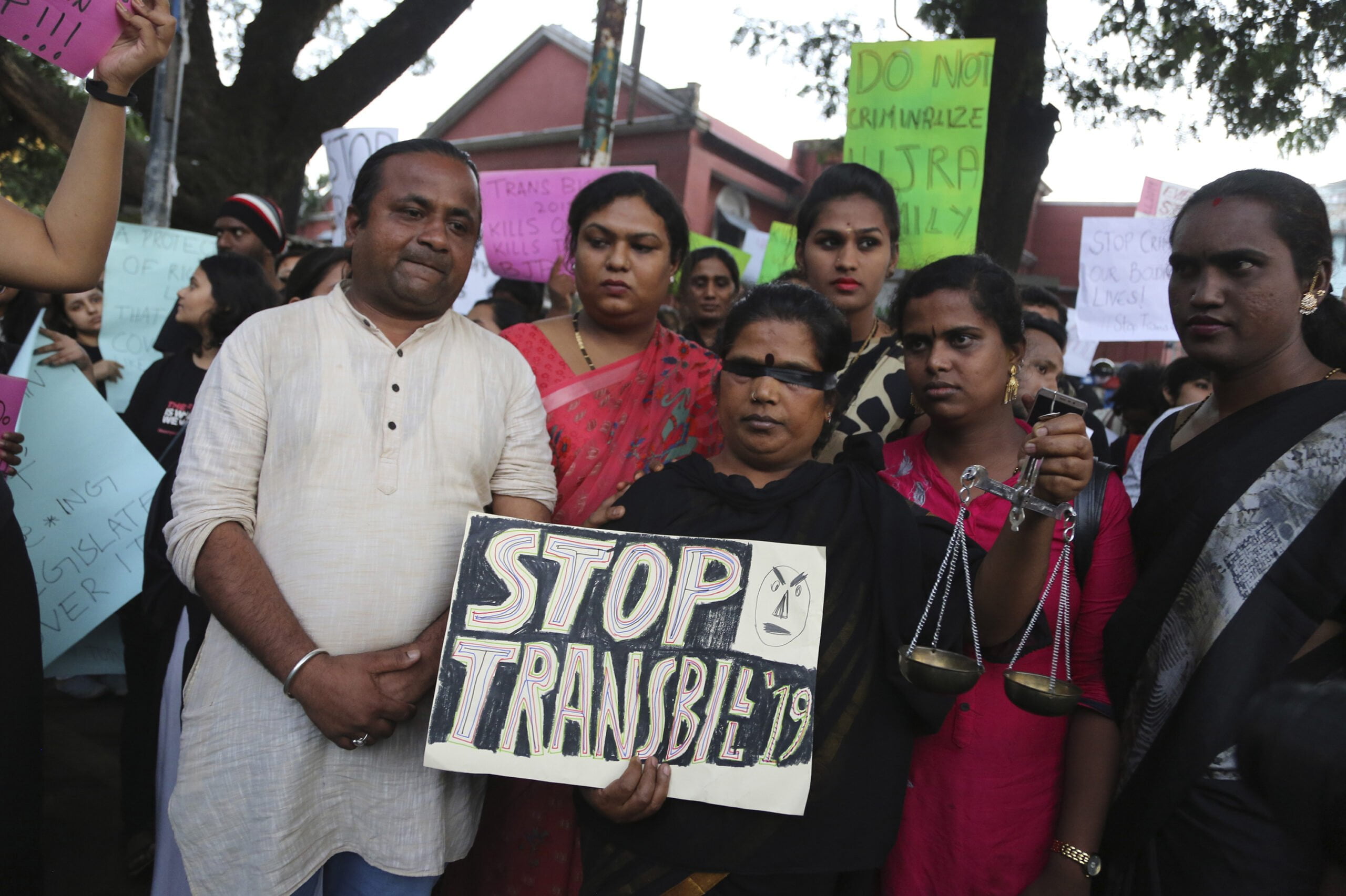
The proposed bill outlines a two-step process for legal gender recognition involving a ‘transgender certificate’ based on self-declared identity. It is followed by a ‘change in gender certificate’ requiring surgery and medical confirmation. However, the bill lacks clarity regarding decision-making guidelines for district magistrates and remains silent on access to government welfare for transgender individuals holding gender certificates. The act was enacted without proper consultation with the transgender community.
However, the bill lacks clarity regarding decision-making guidelines for district magistrates and remains silent on access to government welfare for transgender individuals holding gender certificates.
To make the process more “convenient”, a national portal for transgender persons (NPTP) was introduced where people could apply for a transgender ID online. This ID is supposed to grant access to various governmental schemes and programs, including healthcare, medical insurance, scholarships, and shelter homes.
But the process places a significant burden on trans individuals, acting more as a hindrance than a support. Abhishe, a 25-year-old graphic designer in Delhi, states, ‘I don’t want a TGID. I am already treated differently, and being officially declared as trans will only push me further into marginalisation.’
She emphasises that the inhumane identification card process exacerbates the challenges faced by trans people in society, contradicting the government’s claimed upliftment and instead subjecting individuals to more abuse and discrimination.
According to the 2011 population census (the inaugural enumeration of transgender communities), Delhi is reported to house 4,213 transgender individuals, a figure that activists argue is likely an underestimate. However, over the past three years, only 359 applications have been officially registered, of which a mere 174 have been issued, while 185 remain pending. District magistrates in the capital have processed less than half of the applications for transgender certificates.
The identification process for trans people
The certificate should ideally receive DM approval online within 30 days. Unfortunately, this rarely happens. Some applications are stuck for months, and for some, it’s been years, making the certificate seem like a distant dream.
However, over the past three years, only 359 applications have been officially registered, of which a mere 174 have been issued, while 185 remain pending.
Bela points out the paradox in the government’s intent behind introducing the online portal for trans individuals. ‘Despite its purpose to ease real-life challenges and reduce the rush, the reality is quite different,’ she says.
They still have to visit the DM’s office or district court in person for identity verification. This contradicts the supposed convenience of the online process, as some DMs even resort to arbitrary, intrusive measures, sending authorities to the individuals’ homes to “verify” their trans identity based on a completely unclear and vague criteria.
The identification process poses a significant risk of additional hardship for trans individuals. Often, authorities from the DM’s office visit the addresses mentioned in the Aadhar cards, which, in many cases, are their parents’ homes.
This practice of knocking on parents’ doors increases the vulnerability of individuals, especially for trans youth who may have left their homes due to a lack of acceptance or, worse, being forced out for simply being themselves.
Shailaa, a board member of MitrTrust, Delhi, shares her experience of facing rejection four times while applying for the certificate. She filled the application district-wise, and the first one got rejected, stating that she belonged to another district. Even after applying district by district, her application still got denied. She hasn’t got her certificate yet.
A 19-years old transgender person, Raani, shared concerns about potential corruption among officers handling the applications, expressing fears of bribery.
A 19-years old transgender person, Raani, shared concerns about potential corruption among officers handling the applications, expressing fears of bribery. The stories she has heard from her fellow sisters make her worried about how open and clear the system is.
Unawareness, inaccessibiliy and dependency
A research study from the Centre for Internet and Society found that only around 10-15% of transgender people are skilled at using digital devices.
Payal, a trans woman working In Inderlok near the red-light area from the past 12 years, faced challenges using a keypad phone to apply for a TG certificate. Despite seeking assistance from an NGO, she awaits a response after six months. The lack of internet access and digital devices makes obtaining a TGID a distant aspiration for many within the kinnar and transgender community.
Considering that only about 63% of trans people in Delhi are literate, with 29% never attending school, many lack the necessary proof of identity to apply for certification. Additionally, some are unaware that such a certification process even exists.
The guru-chela system, criticised by many activists as bonded labour, restricts Laila’s autonomy. During interviews, Laila expressed her dependency on her “guru” for all belongings and documents. She is unaware of the existence of the TGID.
Healthcare and housing disparities
Last week, the hopeful news about AIIMS establishing a Centre for Excellence in Transgender Healthcare spread across all media platforms. However, a concern arises: will this truly reach those who need it most, the transgender community? Unfortunately, it appears not. Individuals without a TG certificate are restricted from accessing necessary medical interventions, leaving a poignant gap in access to basic healthcare.
‘Hum log koshish karte hai hamari tabiyat kharab hi na ho’ (We strive to ensure everyone stays well), expresses a community member. They rely on home remedies and over-the-counter medicines to maintain their health.
Due to widespread stigma and discrimination, when someone in the community falls ill, they often choose to stay home or seek support from their fellow companions in the community. There’s a lingering fear that government facilities may not provide adequate support, leading to hesitancy in accessing these resources.
The initiative SMILE (Support for Marginalised Individuals for Livelihood and Enterprise) launched by the Ministry of Social Justice and Empowerment features a segment known as Garima Greh. The primary aim of Garima Greh is to offer shelter, food, medical care, and recreational facilities to transgender individuals.
Reports suggest that Delhi’s Garima Greh, designed to accommodate only 25 people, did not even receive the promised government funds last year.
Reports suggest that Delhi’s Garima Greh, designed to accommodate only 25 people, did not even receive the promised government funds last year. Housing proves to be a significant issue for transgender individuals, as noted by Shaila, who shares, ‘I have personally witnessed and seen way too many landlords evict transgender people upon learning about their identity, often blaming us with false accusations and mistreatment.’
The many more loopholes faced by trans people
In October, the Supreme Court declined the decision on legalising same-sex marriage. However, the Constitution bench, led by Chief Justice D Y Chandrachud, affirmed the right of transgender individuals in heterosexual relationships to marry under existing laws, including personal laws governing marriage.
Despite this, the practicality of marriage for transgender individuals remains hindered due to the requirement for a gender certificate, posing a significant obstacle. With less than half of the certificates getting approved and only a mere 7% of Delhi’s transgender population applying for them, the path to marriage becomes a limited and challenging option.
Under the SMILE initiative, the Ministry has introduced a scholarship for transgender students in classes IX and above, aiming to offer financial assistance. However, another paradox arises as applicants require a certificate, yet the minimum age for applying is 18, creating a challenge for younger students who must rely on their parents to obtain a transgender certificate, a rarity in itself.
Frequently labeled as urban and foreign, this portrayal of transgender and gender non-conforming individuals conceals the underlying legal and social biases faced by the trans-queer community. These biases, rooted in classism and conservative ideologies, are at the core of the challenges faced by this marginalised group.
‘Dilli ka central hone ke bawajood, Dilli sabse peeche hai’ (Despite being the capital, Delhi lags behind), Shaila highlights that Delhi is falling behind due to conflicts between the state and central governments. Bela and Shaila both stress the need for a monitoring system to keep a constant check on laws, ensuring the community doesn’t bear the brunt of political disputes.
Bela and Shaila both stress the need for a monitoring system to keep a constant check on laws, ensuring the community doesn’t bear the brunt of political disputes.
They emphasised, ‘If the government genuinely intends to integrate us into mainstream society, then, just like any cisgender person easily obtains their Aadhaar card through UIDAI, we should also be able to acquire our TGIDs just as effortlessly on the same website. We would have gladly submitted all the necessary documents there.’ They discuss how the process could have been simplified if the authorities were more gender-sensitive and educated about diverse identities.
